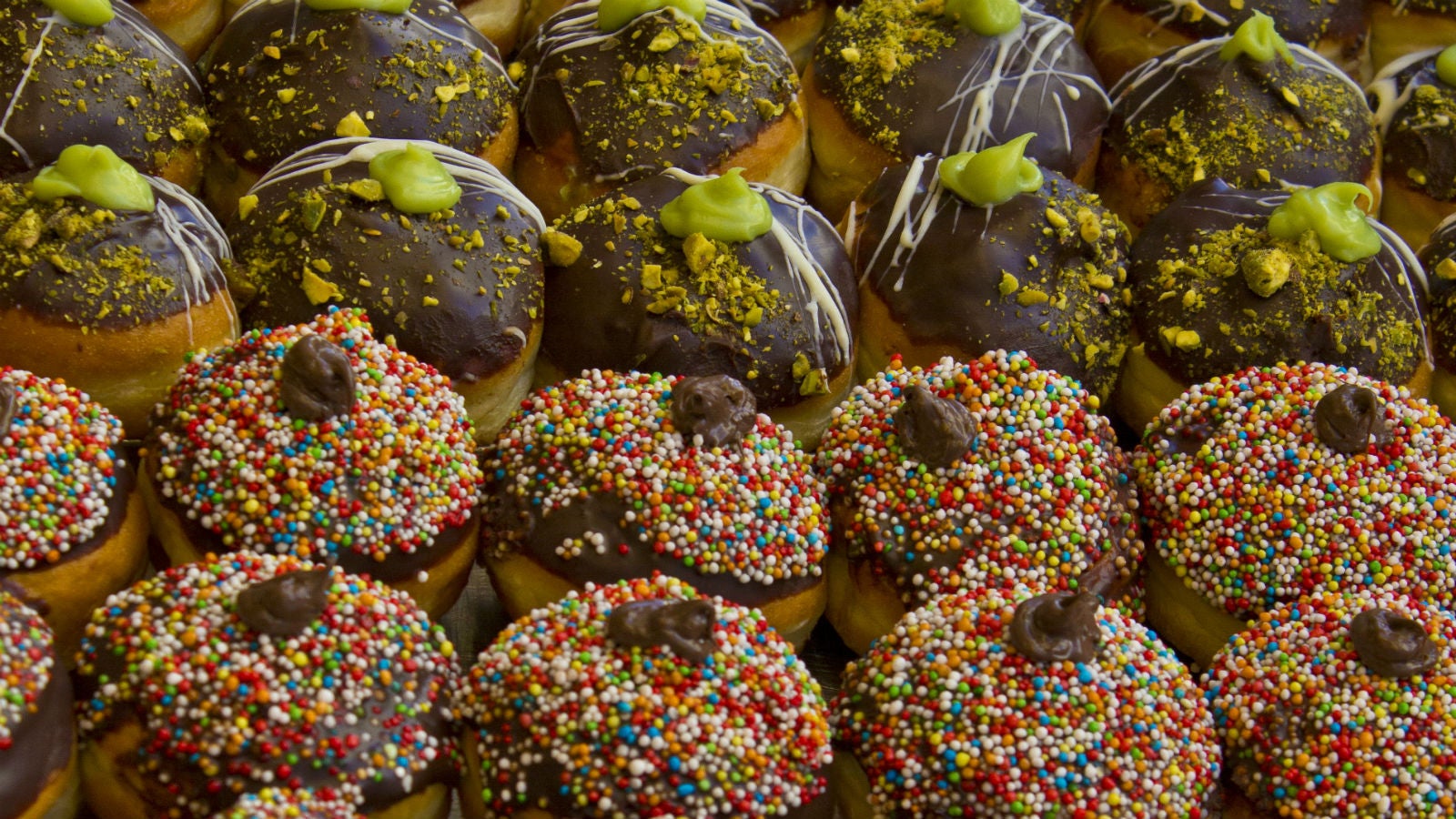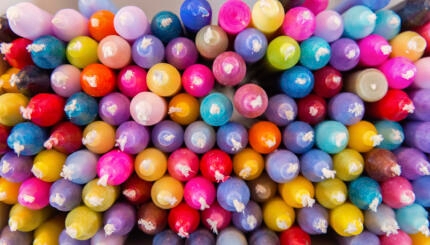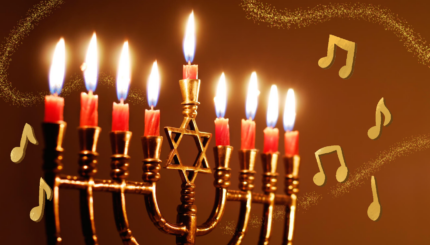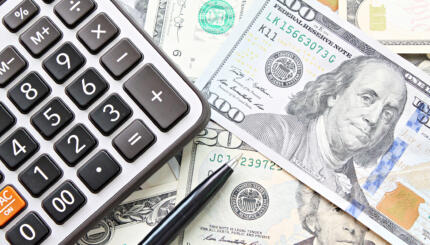As in the Diaspora, Hanukkah in Israel is a major event, with families gathering to light the menorah and feast on fried foods. But Israel does have a number of unique Hanukkah traditions that set it apart from the rest of the Jewish world.
The Dreidel
The most concrete difference between Israeli and Diaspora holiday celebrations is found on the dreidel, the spinning top at the center of this classic holiday game. Outside of Israel, the four-sided top is marked with four Hebrew letters: nun, gimmel, hey, shin, which stand for the Hebrew phrase nes gadol haya sham (“a great miracle happened there”). In Israel, where the Hanukkah miracle took place, the final letter on the dreidel is pey instead of shin, for nes gadol haya po (“a great miracle happened here.”)
Sufganiyot
On Hanukkah, it’s customary to eat fried foods in commemoration of the holiday miracle, in which a jar of oil sufficient to burn for one day wound up burning for eight in the ancient Temple. In most of the world, latkes are the fried food of choice. But Israelis go for sufganiyot, or donuts. The classic version is filled with jelly and topped with dusted sugar. But Israeli bakers have also trotted out an ever-increasing variety of donuts adorned with decadent toppings. Click here to sample Israel’s amazing variety of donut flavors.
Showtime
Hanukkah is showtime in Israel. Across the country, elaborate plays and musicals are staged, perhaps to help keep kids entertained while they’re off from school (yes, Hanukkah is vacation time in Israel). Among the best-known of these is the annual Festigal show, a musical production that pits major Israeli stars against one another in musical numbers.

Help us keep Jewish knowledge accessible to millions of people around the world.
Your donation to My Jewish Learning fuels endless journeys of Jewish discovery. With your help, My Jewish Learning can continue to provide nonstop opportunities for learning, connection and growth.
Outdoor Menorahs
In much of the world, individuals place their menorah in the window of their homes. In Israel, it is also common to place one’s menorah outdoors, in a special box meant to protect the candles from the wind. This means that you don’t have to peer in peoples windows to see their Hanukkah lights — they are seen right on the street.
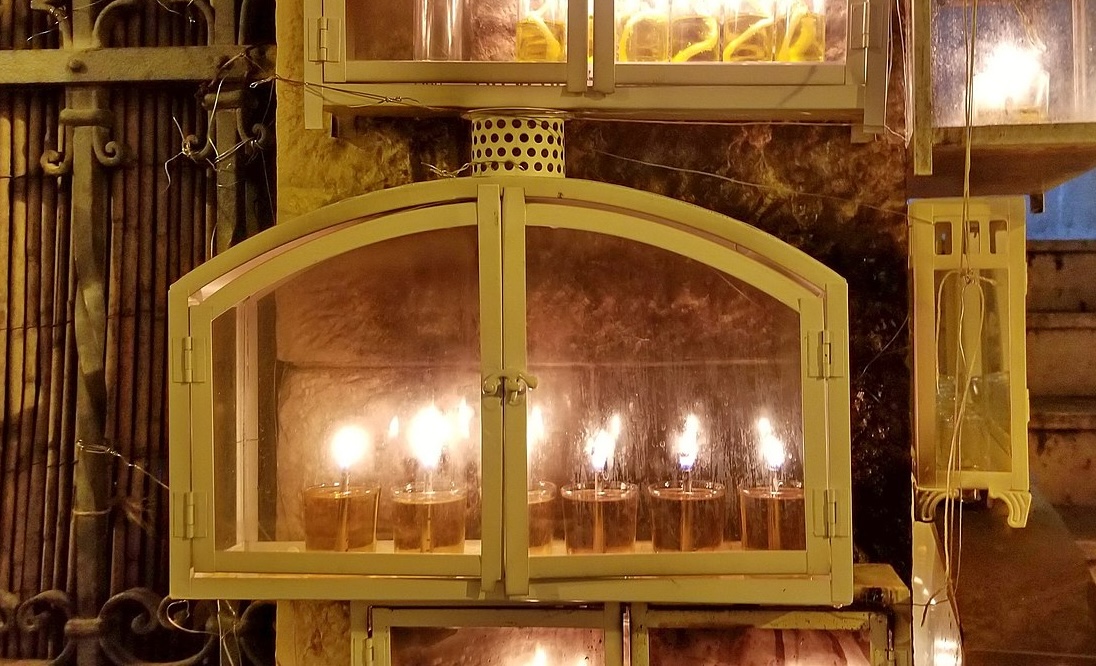
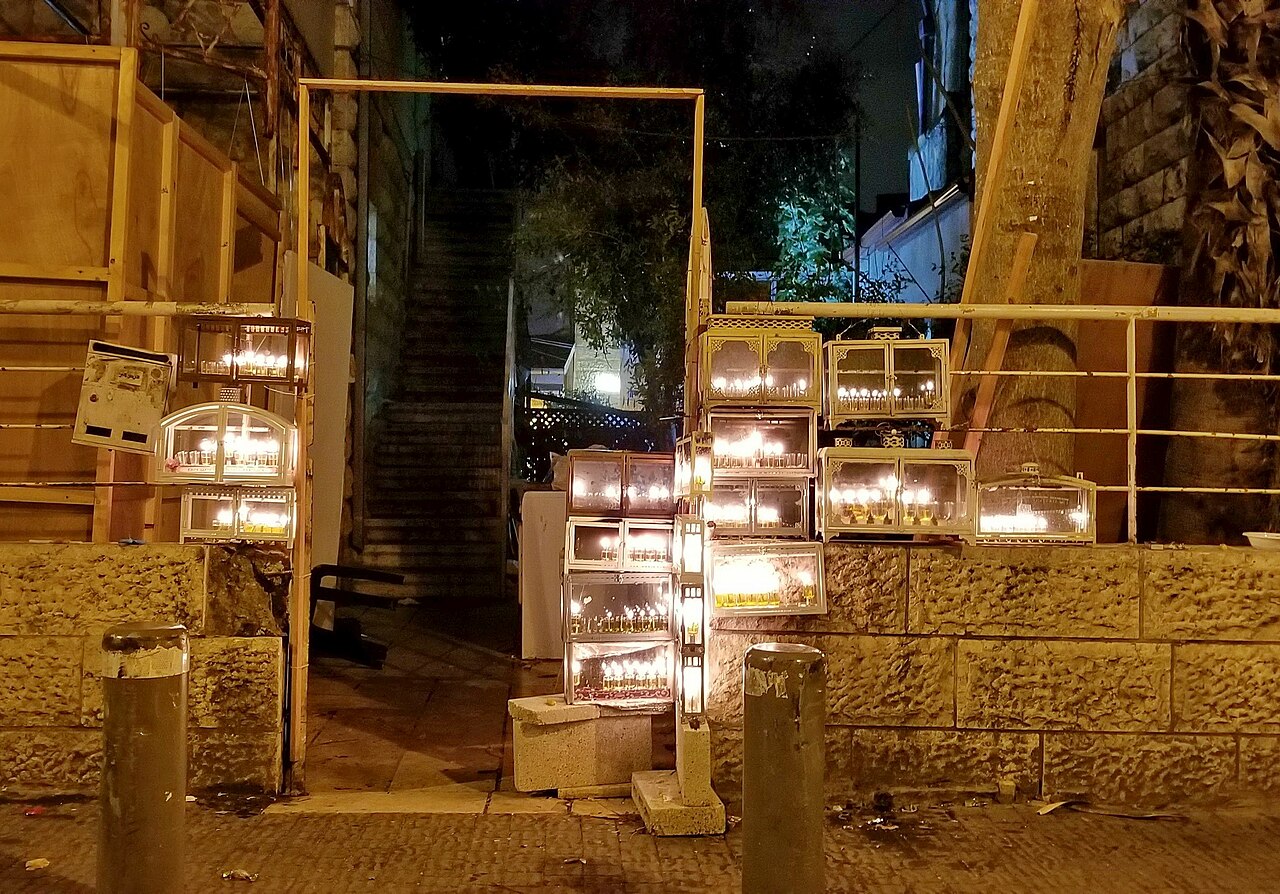
Click here to learn more about Israeli Hanukkah traditions.
Explore Hanukkah’s history, global traditions, food and more with My Jewish Learning’s “All About Hanukkah” email series. Sign up to take a journey through Hanukkah and go deeper into the Festival of Lights.
